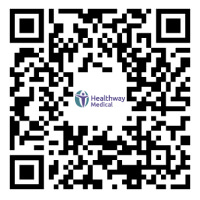
Both diabetes and heart disease are common conditions and can be life-threatening if not addressed. However, in addition to them being dangerous of their own accord, having diabetes can actually increase your chances of having heart disease or stroke.
We explore why and how diabetes and heart disease are linked, and how we can make healthier choices in our lives to prevent these conditions.
What is Heart Disease?
Heart disease is a broad term that refers to several types of heart conditions, from an abnormal heart rhythm, congenital structural problem, to a build-up of plaques in the blood vessels of the heart.
The most common type of heart disease is coronary artery disease, which affects the blood flow to the heart. A reduction in blood flow may increase the risk of a heart attack.
What is the link between heart disease and diabetes?
Diabetes is a condition that causes higher than normal blood sugar levels in your body. Diabetes occurs when your body cannot produce sufficient insulin, a hormone made by special cells in the pancreas. Over time, high blood sugar in your body can damage your blood vessels and the nerves that control your heart and blood vessels.
Patients with diabetes have a 2 to 4-fold increased risk of having a heart attack. The longer you have diabetes, the higher the chances that you will develop heart disease. In fact, if you have diabetes, your chances of dying from heart disease are actually the same as someone who has already had a heart attack.
What else increases one’s chances of heart disease if they have diabetes? What should diabetic patients be extra careful about?
Patients with diabetes are also at increased risk of having high blood pressure, which is another key risk factor of heart disease and stroke.
Over time, diabetes can lead to serious complications, including:
- Vision loss
- Kidney failure
- Nerve damage (peripheral neuropathy)
- Poor wound healing
Are there tests for heart disease?
It is universally agreed that prevention is better than cure. There are many tests that can be done to detect early stages of heart disease. These include:
- Regular blood tests – to check your sugar and cholesterol control.
- ECG
- Echocardiogram – an ultrasound of the heart to assess the structure and function of your heart.
- Exercise stress test – this helps your doctor assess your risk of having a heart attack.
- CT coronary angiogram – This is a non-invasive test, involving CT imaging scan of the heart to assess blockages of the blood vessels of the heart.
- Coronary angiogram and angioplasty – This is a more invasive procedure where a catheter (a small tube) is inserted into an artery in your wrist/groin, and moved up inside the artery until it reaches your heart. This allows the doctor to take X-ray pictures to determine the severity of the blockages of the blood vessels of the heart, and for coronary angioplasty to be performed.
Coronary angioplasty is a procedure in which a balloon/stent is used to open the blockage in the heart artery and improve the blood flow to the heart.
What can I do to take better care of my heart?
For patients with diabetes, it is important to maintain a healthy lifestyle and manage your diabetes effectively. Ways to do this include:
- Eat a healthy diet/foods.
- Get moving. Aim for moderate-intensity exercise for at least 30 minutes, 5 times a week.
- Quit smoking. Smoking and exposure to second-hand smoking increase your risk of developing heart disease and stroke.
- Maintain a healthy weight.
- Managing your blood cholesterol and blood pressure levels.
- Taking your medication to control diabetes as prescribed by your doctor.

Dr Leow Khang Leng
Consultant Cardiologist
Nobel Heart Centre
Our Specialist
Dr Leow Khang Leng is a Consultant Cardiologist who treats various cardiac conditions such as coronary artery disease, acute myocardial infarction, valvular heart disease, heart failure and cardiac arrhythmias.
Dr Leow held many key leadership positions, including Director of Coronary Care Unit, Clinical Lead for the Cardiac Catheterization Laboratory, Director of Cardiovascular Centre, as well as the Chairman of the Pharmacy & Therapeutics Committee during his tenure at Khoo Teck Puat Hospital.
*Please check with your insurer directly, on which of our doctors are on your insurance panel










